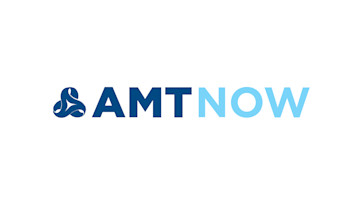Important developments from Washington, D.C.
Recently, AMT Vice President and Chief Technology Officer Tim Shinbara, who is currently serving an ASME Congressional Fellowship supporting manufacturing, technology and supply chain issues, provided Capitol Hill with vital context about President Joe Biden’s February executive order (EO) to review critical supply chains with the aim of bolstering U.S. manufacturing.
Shinbara discussed these insights with AMT Vice President – Advocacy Amber Thomas and AMT Chief Knowledge Officer Pat McGibbon in the recent IMTS spark interview, “Policy & Strategy – The New Administration: Industrial Policy/Supply Chain.” This session is available on demand at IMTS.com/spark through June 2021. Here are the highlights.
On Feb. 24, 2021, President Biden issued an EO to assess the United States’ supply chain for six sectors and conduct a 100-day review of four classes of products where U.S. manufacturers rely on imports: semiconductors, active pharmaceuticals ingredients (API), critical minerals and rare earth materials, and high-capacity batteries for use in electric vehicles.
The pandemic clearly revealed how supply chain disruptions and shortfalls have a reverberating effect. In 2020, auto production lines paused because of a lack of computer chips, health care workers made do without enough PPE, and pharmaceutical companies were concerned about critical drug supplies.
The six sectors under a longer, year-long review include critical areas related to the defense industrial base (DIB) such as information and communication technology (software, data, and associated services); transportation and energy systems; agricultural commodities and food products; other goods and materials related to the DIB but not under the categories; and manufacturing or other capabilities necessary to produce the materials identified.
The EO states, “The United States needs resilient, diverse, and secure supply chains to ensure economic prosperity and national security,” as many “conditions can reduce critical manufacturing capacity and the availability and integrity of critical goods, products, and services.”
Shinbara is encouraged by the sense of synergy he sees on the Hill, where legislators and industrial businesses are speaking the same language. Both parties are optimistic about legislation to encourage investment in U.S. semiconductor manufacturing needed for vehicles, appliances, and transformational technologies like 5G and artificial intelligence, and both recognize that the U.S. government needs to invest in critical research and development to ensure the United States is a technology leader and not reliant on critical components from other countries.
There is also agreement that strengthening the manufacturing sector is an important driver of economic growth and job creation. AMT supported several bipartisan pieces of legislation that elevated manufacturing and technology to the top of the national agenda. Those bills could be reintroduced this year, along with new bills focused on our Manufacturing Mandate priorities.
Shinbara is also hearing legislators talk about how the United States needs to develop a more focused, intentional approach – in some cases, this is even described as an industrial policy – to create a level playing field for manufacturers to compete globally. A concept you don’t usually hear in Washington is now being heard more because of the need to take bold action to support those industries critical to public health and national security.
The EO is only part of a longer-term solution but provides the impetus for our leaders to develop a strategic solution for the United States that nurtures an ecosystem for technology development and revitalizes domestic manufacturing capacity.
AMT continues to advocate for policies that incentivize R&D and innovation, level the playing field for U.S. manufacturers, and build a skilled workforce to take us into the future with transformational technologies.
It is important to engage with your senators and representatives to let them know about your business and the issues that impact it. If you need help reaching out, contact Amber Thomas.






